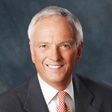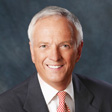Is Your Adviser Really a Fiduciary?
You should ask point blank and check if they are a CEFEX-certified firm.

Profit and prosper with the best of Kiplinger's advice on investing, taxes, retirement, personal finance and much more. Delivered daily. Enter your email in the box and click Sign Me Up.
You are now subscribed
Your newsletter sign-up was successful
Want to add more newsletters?

Delivered daily
Kiplinger Today
Profit and prosper with the best of Kiplinger's advice on investing, taxes, retirement, personal finance and much more delivered daily. Smart money moves start here.

Sent five days a week
Kiplinger A Step Ahead
Get practical help to make better financial decisions in your everyday life, from spending to savings on top deals.

Delivered daily
Kiplinger Closing Bell
Get today's biggest financial and investing headlines delivered to your inbox every day the U.S. stock market is open.

Sent twice a week
Kiplinger Adviser Intel
Financial pros across the country share best practices and fresh tactics to preserve and grow your wealth.

Delivered weekly
Kiplinger Tax Tips
Trim your federal and state tax bills with practical tax-planning and tax-cutting strategies.

Sent twice a week
Kiplinger Retirement Tips
Your twice-a-week guide to planning and enjoying a financially secure and richly rewarding retirement

Sent bimonthly.
Kiplinger Adviser Angle
Insights for advisers, wealth managers and other financial professionals.

Sent twice a week
Kiplinger Investing Weekly
Your twice-a-week roundup of promising stocks, funds, companies and industries you should consider, ones you should avoid, and why.

Sent weekly for six weeks
Kiplinger Invest for Retirement
Your step-by-step six-part series on how to invest for retirement, from devising a successful strategy to exactly which investments to choose.
In the world of financial planning, the term "fiduciary" has become co-opted and rather commoditized. From my perspective, being a fiduciary at its most basic definition means placing your client's interests before your own. But further unpacked, this simple definition can become a viper's den of complications and caveats in certain hands.
Let's discuss the distinctions of a true fiduciary and those who may simply use the term.
The largest distinction lies in the difference between investment advisers, acting as a fiduciary by strict definition, and a broker-dealer, whose actions may not be in a fiduciary capacity at all. My firm's investment adviser, Certified Advisory Corp, is the former and provides investment advice to its clients. The only fee we derive for the advice rendered is the agreed-upon fee.
From just $107.88 $24.99 for Kiplinger Personal Finance
Become a smarter, better informed investor. Subscribe from just $107.88 $24.99, plus get up to 4 Special Issues

Sign up for Kiplinger’s Free Newsletters
Profit and prosper with the best of expert advice on investing, taxes, retirement, personal finance and more - straight to your e-mail.
Profit and prosper with the best of expert advice - straight to your e-mail.
In contrast, a broker-dealer cannot legally provide substantive advice. The advice they do provide typically comes attached to a product. This product may be the brokerage platform itself and, more insidiously, a proprietary investment product.
Imagine a scenario in which your broker-dealer charges you 0.50% for investment advice on your $10 million of investable plan assets. They also charge you a fee for trades executed through their brokerage platform—clear incentive to ensure your broker-dealer affiliated adviser uses only that platform and does not search for equal, more cost-effective alternatives. At the same time, your broker-dealer-affiliated adviser may also push a branded proprietary product. If selected, the revenue of this product flows back to the broker-dealer parent, and your adviser likely receives a commission or soft dollar incentive for this additionally derived revenue.
This proprietary investment product, now added to your portfolio or investment lineup, may be a fine product, and truly suitable. However, did your adviser act in your best interest and search for alternatives that perhaps had a better share class or other lower fees? In a worst-case scenario, are you certain they properly evaluated investment alternatives that may not only have been cheaper, but may have also outperformed their proprietary offering?
The commission-based incentive to sell you this product ensures that they likely have not taken these actions. If you are a sponsor of an employee retirement plan, this lack of fiduciary due diligence on your end now opens you up to a litany of breach of fiduciary duty claims that settle on your shoulders—not on your broker-dealer, who never truly accepted the role of a fiduciary that ERISA mandates.
The Department of Labor's Fiduciary Rule
These issues should be enough to bring one question to the fore: "How much money is my broker-dealer or broker-dealer's registered representative deriving from their relationship with me?" The answer is likely much more than the fee you believe you're paying.
The next question you should ask your adviser point blank: "Are you a fiduciary? And, if so, "What kind of fiduciary are you?"
Helping to clarify these questions is the Department of Labor's new fiduciary rule, which is scheduled to be instituted in full in the coming months. And while complicated, totaling more than 1,000 pages, it does lay out one very clear thesis: Broker-dealers cannot provide advice nor exist as fiduciaries in any capacity if they are also providing investment product. Given this, it does beg the question of whether broker-dealers can ever act as fiduciaries or, in fact, have ever truly acted in this capacity historically.
Besides asking whether a professional is a fiduciary, you can also check whether the adviser has received the Centre for Fiduciary Excellence's CEFEX designation—as Certified Advisory Corp has.
Only 75 investment advisers in the U.S. are currently CEFEX certified. The process to certification requires a 120-page questionnaire and an on-site examination. The Centre for Fiduciary Excellence is independent, and its CEFEX designation is described as serving investors "who require assurance that their investments are being managed according to commonly accepted best practices." At the same time, it assists these investors in identifying and determining "the trustworthiness of investment fiduciaries."
You can learn more about the specifics of the CEFEX process here, but I believe this designation underscores a commitment to both the spirit and the letter of being a fiduciary.
When working with a CEFEX-certified firm, you can rest assured that you are working with a true fiduciary, who is providing you the latest insight to achieve distinctive results.
Joseph F. Bert, CFP®, AIF®, the founder of Certified Financial Group, Inc., has been in the financial planning profession since 1976. He is also president of Certified Advisory Corp and a member of the Financial Planning Association, where he served as its President and Chairman of the Central Florida chapter.
Since 1976, Certified Financial Group, Inc., has grown to become one of central Florida's largest independent financial services firms providing fee-only financial planning and investment management to individuals, families and employer-related retirement plans through its Investment Adviser, Certified Advisory Corp.
Profit and prosper with the best of Kiplinger's advice on investing, taxes, retirement, personal finance and much more. Delivered daily. Enter your email in the box and click Sign Me Up.

Joe Bert, CFP® is the Chairman and CEO of Certified Financial Group, Inc. and has been in the financial planning profession since 1976. Joe can be heard every Saturday in Orlando, FL on News 96.5 FM at 9:00 a.m. EST hosting On the Money and seen twice weekly on the Fox TV affiliate, WOFL Fox 35. An experienced and knowledgeable financial planning practitioner, he has been affectionately referred to as the "Oracle of Orlando®" by his audience.
-
 How Much It Costs to Host a Super Bowl Party in 2026
How Much It Costs to Host a Super Bowl Party in 2026Hosting a Super Bowl party in 2026 could cost you. Here's a breakdown of food, drink and entertainment costs — plus ways to save.
-
 3 Reasons to Use a 5-Year CD As You Approach Retirement
3 Reasons to Use a 5-Year CD As You Approach RetirementA five-year CD can help you reach other milestones as you approach retirement.
-
 Your Adult Kids Are Doing Fine. Is It Time To Spend Some of Their Inheritance?
Your Adult Kids Are Doing Fine. Is It Time To Spend Some of Their Inheritance?If your kids are successful, do they need an inheritance? Ask yourself these four questions before passing down another dollar.
-
 The 4 Estate Planning Documents Every High-Net-Worth Family Needs (Not Just a Will)
The 4 Estate Planning Documents Every High-Net-Worth Family Needs (Not Just a Will)The key to successful estate planning for HNW families isn't just drafting these four documents, but ensuring they're current and immediately accessible.
-
 Love and Legacy: What Couples Rarely Talk About (But Should)
Love and Legacy: What Couples Rarely Talk About (But Should)Couples who talk openly about finances, including estate planning, are more likely to head into retirement joyfully. How can you get the conversation going?
-
 How to Get the Fair Value for Your Shares When You Are in the Minority Vote on a Sale of Substantially All Corporate Assets
How to Get the Fair Value for Your Shares When You Are in the Minority Vote on a Sale of Substantially All Corporate AssetsWhen a sale of substantially all corporate assets is approved by majority vote, shareholders on the losing side of the vote should understand their rights.
-
 How to Add a Pet Trust to Your Estate Plan: Don't Leave Your Best Friend to Chance
How to Add a Pet Trust to Your Estate Plan: Don't Leave Your Best Friend to ChanceAdding a pet trust to your estate plan can ensure your pets are properly looked after when you're no longer able to care for them. This is how to go about it.
-
 Want to Avoid Leaving Chaos in Your Wake? Don't Leave Behind an Outdated Estate Plan
Want to Avoid Leaving Chaos in Your Wake? Don't Leave Behind an Outdated Estate PlanAn outdated or incomplete estate plan could cause confusion for those handling your affairs at a difficult time. This guide highlights what to update and when.
-
 I'm a Financial Adviser: This Is Why I Became an Advocate for Fee-Only Financial Advice
I'm a Financial Adviser: This Is Why I Became an Advocate for Fee-Only Financial AdviceCan financial advisers who earn commissions on product sales give clients the best advice? For one professional, changing track was the clear choice.
-
 I Met With 100-Plus Advisers to Develop This Road Map for Adopting AI
I Met With 100-Plus Advisers to Develop This Road Map for Adopting AIFor financial advisers eager to embrace AI but unsure where to start, this road map will help you integrate the right tools and safeguards into your work.
-
 The Referral Revolution: How to Grow Your Business With Trust
The Referral Revolution: How to Grow Your Business With TrustYou can attract ideal clients by focusing on value and leveraging your current relationships to create a referral-based practice.